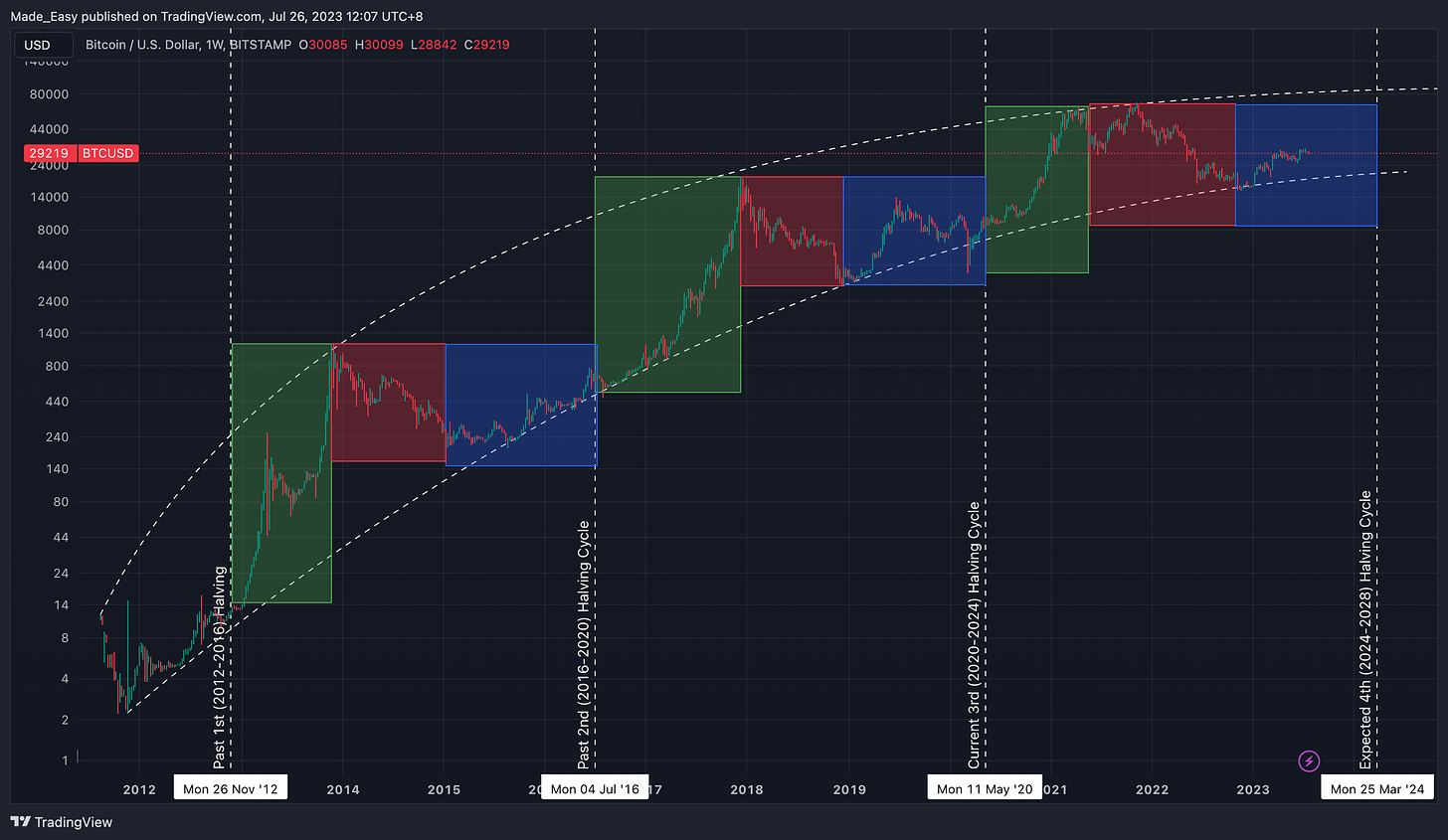As a philosopher, I ask the question, “Why was there an age of Bitcoin?” And the answer is: Crypto markets exist because we are living through an age of excess money. We have too much money, because we can’t buy more houses or have more children, and we don’t need another car. So, we spend our excess cash on “future investments”.
Bitcoin, being such a global and unregulated market, got the world’s attention. Though, I’ve noticed a suspicious problem represented by the following graph of Bitcoin’s past price development:
For one, it does not follow exponential growth, but rather, the law of diminishing returns. If returns from 2012-2014 were 100x, they were only 50x during the next cycle, and only 15x the cycle thereafter.
Logically, this means we may expect a 4x return during this cycle (perhaps from $50k or $200k, or perhaps just from $30k-$120k). And the cycle for 2028-2030 may only see 1.5x or no return at all. At that point, Bitcoin, along with all the other crypto markets, simply dies, and will never return.
I regard the crypto markets a unique but historically temporary phenomenon. It exists now because of a confluence of other matters: a high-tech internet-based society, Western people with loads of excess cash they can’t meaningfully spend otherwise, and the global influence of the U.S. election cycles.
Notice that the Bitcoin price demand actually only increases after each U.S. election in November, every four years. And that Bitcoin already starts crashing down again after just 4-6 months into the new presidency.
It means that by February-April 2025, we should already expect the crypto markets to die down, as people lose faith in the new presidency. Since nothing big will really change, and since the dreamed utopia won’t arrive, people, disappointed, begin to divest again.
But the phenomenon has a half-life too (the law of diminishing returns), and ultimately, there won’t be enough new investors to care about Bitcoin. Especially if new meaningful ways to spend one’s cash and labor will arrive in the future.
We may even enter a post-internet age, where people return to investing their labor into the soil they live on, and to produce families born of such soil.













Share this post